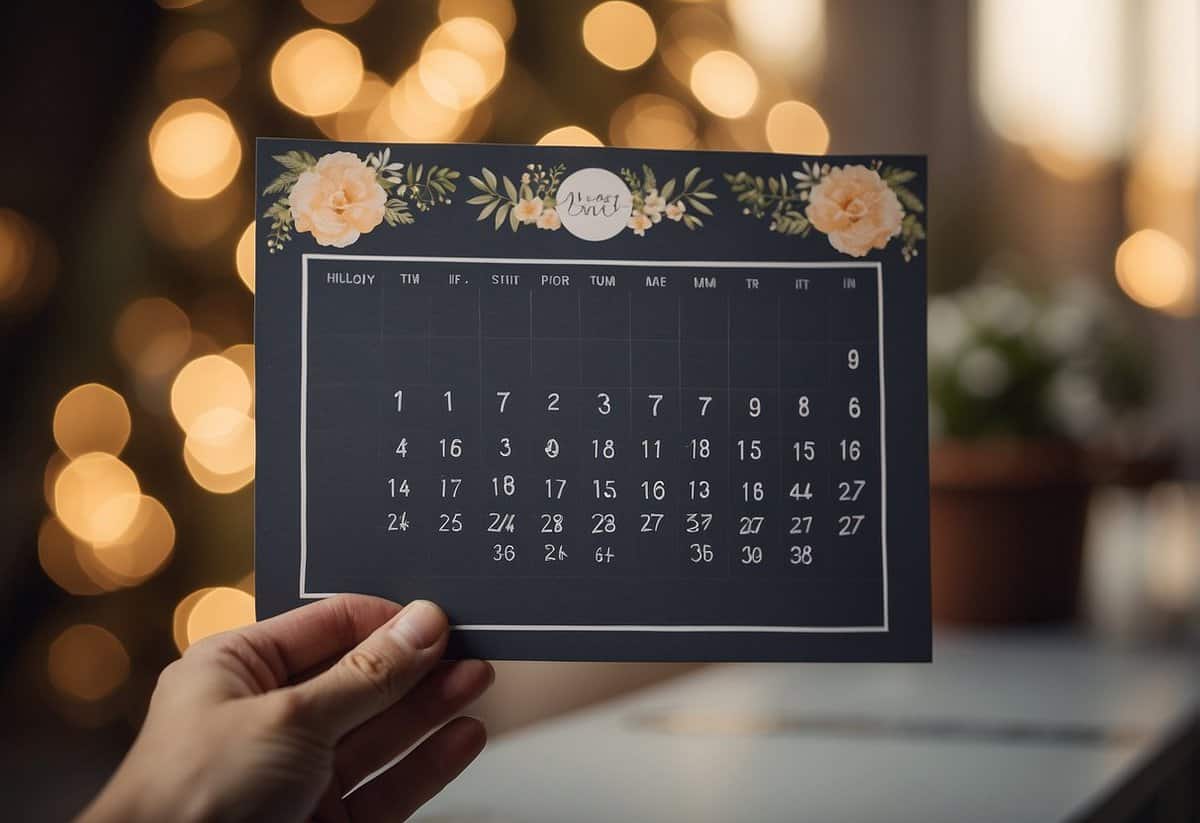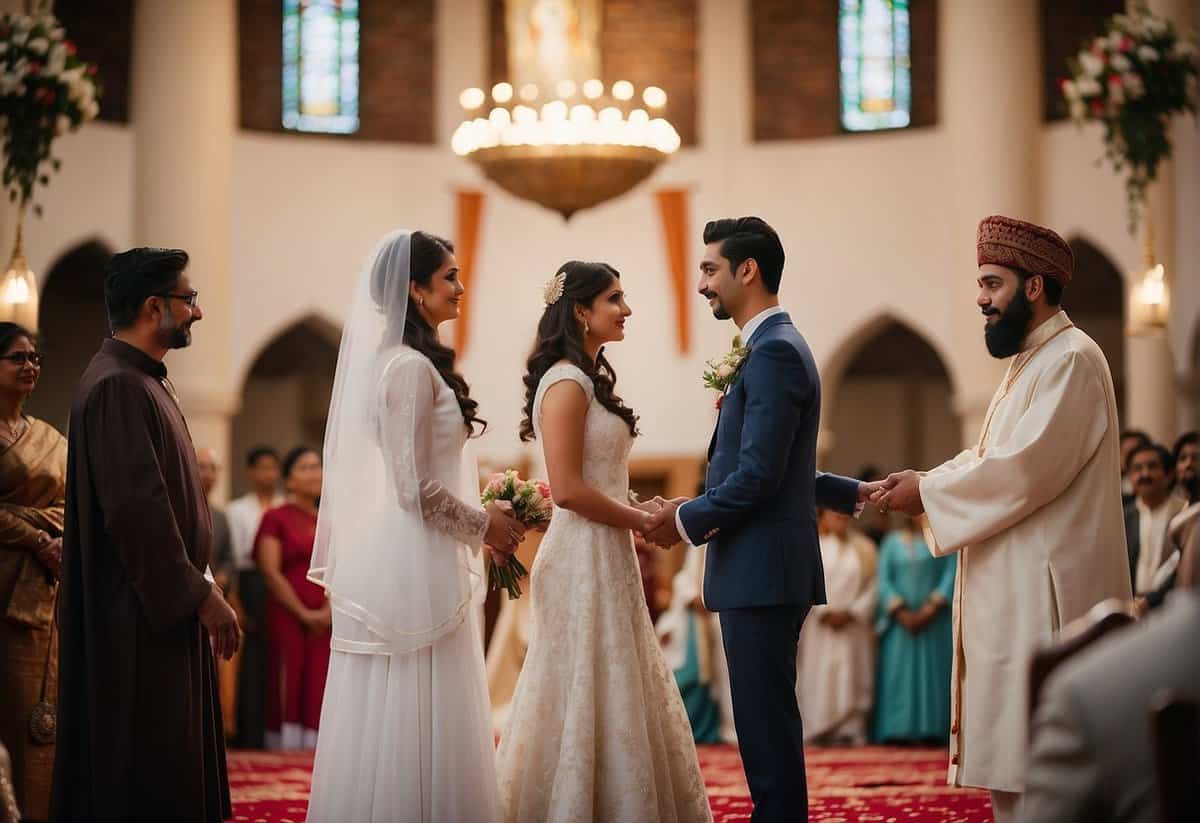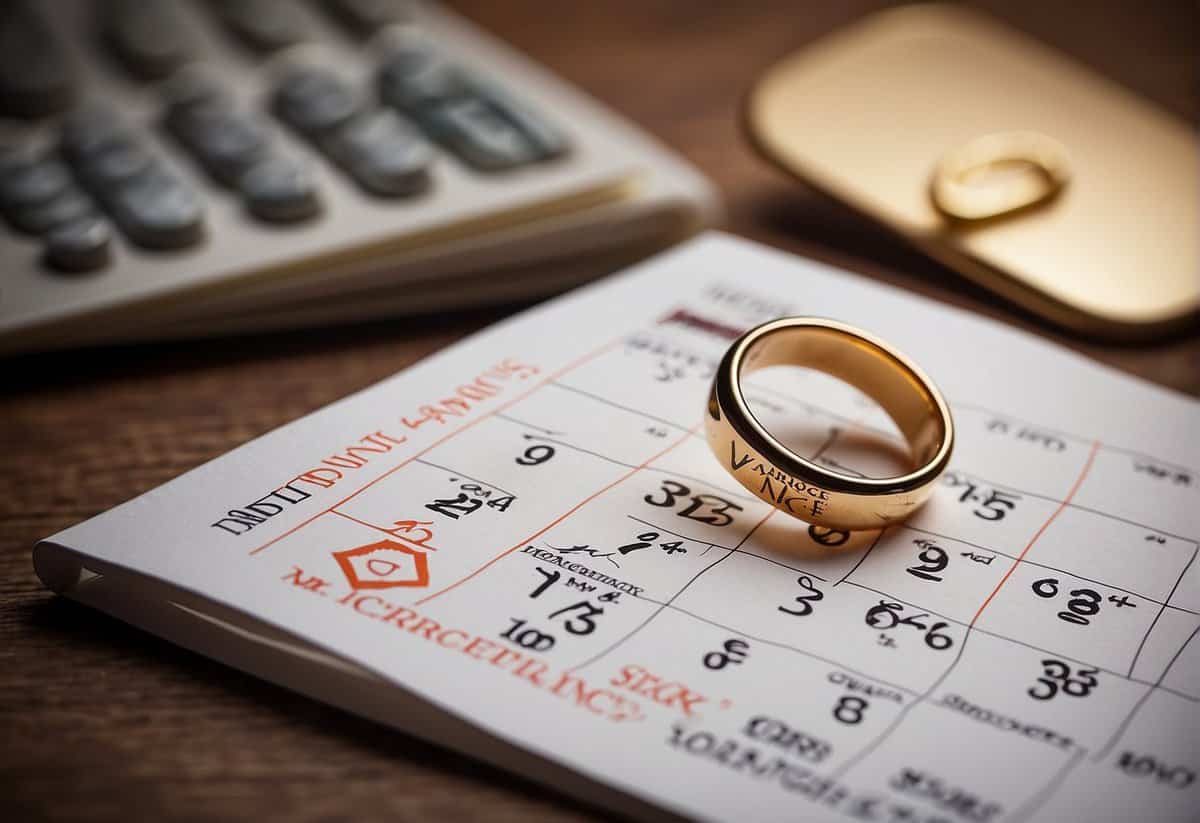Can You Get Married Without Giving 28 Days Notice: Understanding the Exceptions
When planning your special day, understanding the legalities around marriage is as important as choosing the perfect venue or dress. In many places, there is a requirement to give notice of marriage, typically 28 days, before you can legally tie the knot. This notice period is crucial as it allows the relevant authorities to ensure that both parties are free to marry and that all legal prerequisites have been met. However, you may wonder if it’s ever possible to circumvent this notice period. Situations may arise where a couple wishes to marry without the standard waiting period, but whether this can happen depends on local laws and specific circumstances.

In England and Wales, for example, giving 28 days’ notice at the Register Office is a mandatory step prior to getting married. This rule ensures that all necessary checks are performed and any objections to the marriage can be duly considered. In certain circumstances, such as if one partner is critically ill, some countries may have provisions to expedite the process. Always consult with local authorities or legal advisors to understand the laws applicable to your situation and whether there are any provisions for waiving the usual notice requirements for marriage.
Key Takeaways
- A standard notice period for marriage, often 28 days, is a common legal requirement.
- Circumstances allowing a couple to marry without this notice are rare and subject to specific laws.
- Consulting with legal authorities is essential when considering the legal requirements for marriage.
Legal Requirements for Marriage

Before you plan your big day, it’s essential to understand the legal requirements for marriage, which vary by jurisdiction and can include providing notice, satisfying waiting periods, and presenting adequate documentation.
Notice of Marriage and Waiting Period
In the UK, you’re required to give notice of marriage at your local register office 29 days before your wedding. This waiting period allows the marriage authority to ensure that both parties are free to marry.
Documents and Identification Needed
When giving notice, you must provide proof of identity, often your passport, proof of address, and, if previously married, a decree absolute or death certificate of your late spouse. Your date of birth will also be verified to confirm that you’re of legal age.
Understanding Civil and Religious Ceremonies
Marriages can be civil or religious ceremonies. Civil ceremonies are conducted by a superintendent registrar, while religious ceremonies are carried out by an authorised person, such as a priest, and often have additional requirements depending on the faith.
Eligibility and Preconditions
To legally marry, you must be at least 18 years old or have parental consent if younger. You also need to be single, widowed, or divorced, essentially free to marry.
Special Considerations for Foreign Nationals
If you’re a foreign national from outside the EEA and do not have indefinite leave to remain, visa requirements or settled or pre-settled status under the EU Settlement Scheme may be applicable.
Exceptions and Special Cases
There are exceptions to standard notice periods. For example, the Church of England or Church in Wales may allow you to marry without a 29-days notice if a common licence is granted.
Registration Process and Certificates
The registration of marriage involves an appointment with the register office within your registration district. Upon marrying, you will receive a marriage certificate or a marriage schedule from authorized personnel.
Churches and Recognized Bodies
Church of England weddings often include marriage registration within the ceremony, while marriages in other religious buildings may require a registrar’s presence. Same-sex marriages are recognized except in the case of the Church of England and Church in Wales.
Civil Partnerships
Civil partnerships are available for both opposite-sex and same-sex couples providing legal recognition similar to marriage. The process does not require a ceremony, but you still must give notice and sign the civil partnership document in the presence of a registrar and two witnesses.
Planning Your Marriage

When you’re ready to take the significant step of getting married, understanding the necessary steps and legal requirements is crucial. Let’s navigate through the process of setting your date, arranging documentation, managing finances, and understanding the legal aspects specific to your union.
Setting the Date and Venue
Choosing your wedding date takes careful consideration, and it’s closely tied to selecting the right venue. Remember, before your dream day becomes a reality, you must give 28 days’ notice of marriage at your local register office. This gives you time to secure your preferred location, which could be anywhere from a traditional wedding venue to a more personal setting. Whether you’re envisioning a religious ceremony or a civil ceremony, give yourself at least 29 days before your ceremony to meet this legal requirement. Keep in mind you must hold your ceremony within 12 months of giving notice.
Marriage and Civil Partnership Documentation
Gathering the necessary paperwork is a fundamental part of the marriage process. To legally marry or enter into a civil partnership, you’ll need to provide identification documents, which often include a valid passport, a bank statement, or a council tax bill as proof of residence. You’ll also need to submit a marriage certificate application, which typically involves a statutory fee. Visit the official government website or your local register office’s website for specific documentation required.
Financial Considerations
Planning a wedding involves several financial considerations. Apart from the cost associated with booking your venue, there are statutory fees for providing notice of marriage, as well as the issuance of the marriage certificate. Prepare to budget for these expenses, and if necessary, also account for the costs of securing additional documentation like a divorce decree if applicable.
Legal Provisions for Different Types of Unions
Your union’s legal provisions can differ based on whether it’s a same-sex marriage, a civil marriage, or a civil partnership. Be aware that entering into a marriage when you’re already married (bigamous marriage) is illegal. When planning a religious ceremony, specific additional requirements might apply, such as pre-marital counseling or meetings with religious leaders.
Guidance for Special Scenarios
If your situation involves more complex family ties, such as adopted children, relations to genetic grandparents, step relations, or in-laws, seek guidance early on to understand how this affects your union. It’s especially important to clarify any legal nuances that might arise in these scenarios to ensure the legality of your marriage or partnership.
After the Wedding: Legal and Personal Changes

After saying “I do,” there’s a lot to consider beyond the celebrations. From updating personal documents to reflecting on expanding your family, each step is pivotal for your new chapter.
Updating Legal Documents
You’ll need to update various legal documents with your new marital status. This includes informing government bodies and companies about the changes to your address, nationality, or occupation if applicable. Ensure that your marital status is current on all legal and personal records, like your driver’s license and bank accounts.
Changing Name and Marital Status
If you choose to change your name after marriage, start by getting a new birth certificate reflecting your married name. Then, proceed to update your name across all legal documentation. Remember, if you’re entering a civil partnership, the same process applies.
Considering Children and Parentage
Decisions about children are significant post-wedding. If you plan to have children or become step-relations or in-laws to existing ones, it’s important to understand the legalities, from genetic parents to adopted children. Acquiring a correct and updated birth certificate for any child in your care is crucial.
Dealing with Complicating Factors
Navigating complexities such as bigamy, which is a criminal offence, requires attention to legal detail. Be aware that marrying while still legally married to someone else can lead to serious legal consequences. Also, any objection or legal reason preventing a valid marriage must be dealt with beforehand.
Cultural and Religious Considerations

In various cultures and religions, there are unique practices that can shape how you approach your wedding, especially when it comes to the timing and legalities involved.
Religious Ceremonies Outside of the Legal Framework
Certain religious ceremonies allow you to commit to your partner without the standard legal notice. For example, it’s possible to have a spiritual ceremony that is not legally recognized without adhering to the 28-day notice period. However, without a marriage license, such commitments aren’t considered legal marriages.
Customs and Traditions in Marriage
The customs in marriage ceremonies can vary widely; for instance, a Jewish wedding requires a ketubah, or marriage contract, which differs from legal requirements. In Native American communities, marriage traditions reflect a rich cultural heritage that often takes place outside of the legal system, with distinct ceremonial practices for different tribes.
Respect for Diverse Forms of Marriage
Same-sex couples and opposite-sex couples may approach the marriage process differently, from choosing the venue to who performs the ceremony. The Church of England, for instance, does not conduct same-sex marriage ceremonies, while other religious institutions or a wedding celebrant might. For a same-sex marriage, you may find venues and celebrants that respect and honor your union.
Navigating Family Expectations
Family expectations can heavily influence the wedding. If you’re under the age of 18, you typically need parental consent to get married, and rules can be more complex if you’re a transgender person hoping to marry. Because marriage also involves legal statements about no impediment due to being blood relatives or within prohibited degrees of relationship – including genetic grandparents – these factors must be considered alongside family customs and expectations.
Frequently Asked Questions

Before you say “I do,” it’s important to understand the legal requirements for getting married. These frequently asked questions will guide you through the necessary steps and documents needed to ensure your marriage complies with UK law.
What are the required documents to give notice of marriage in the UK?
In the UK, to give notice of marriage, you typically need to provide proof of identity, age, nationality, and proof of residence. This often includes your passport, birth certificate, and a utility bill or bank statement with your address.
Is there a way to expedite the process of getting married?
The standard notice period for marriage in the UK is 29 days, and this cannot be expedited under normal circumstances. Certain exceptions apply, such as a terminal illness, which might allow for a reduction of the notice period.
What do I need to do after I’ve decided to get married?
After deciding to get married, you must give notice at your local register office, which starts the 29-day countdown before the ceremony can legally take place. You’ll also need to start planning the ceremony and consider if you need to apply for a marriage visa if you or your partner are not from the UK.
How long is the notice period before getting married in Northern Ireland?
In Northern Ireland, the notice period before getting married is 28 days, just like in the rest of the UK. Remember to account for this time as you plan your wedding date.
Are notices of marriage publicly available online in the UK?
Notices of marriage are not typically available online. They are on public display at the register office where the notice was given, which allows anyone to come forward with legal objections to the marriage.
What does the appointment for giving notice of marriage involve?
During your appointment to give notice of marriage, you’ll be asked to present the necessary documents, answer personal details about yourselves and your intended marriage, and pay the notice fee. It’s a legal declaration of your intent to marry.

